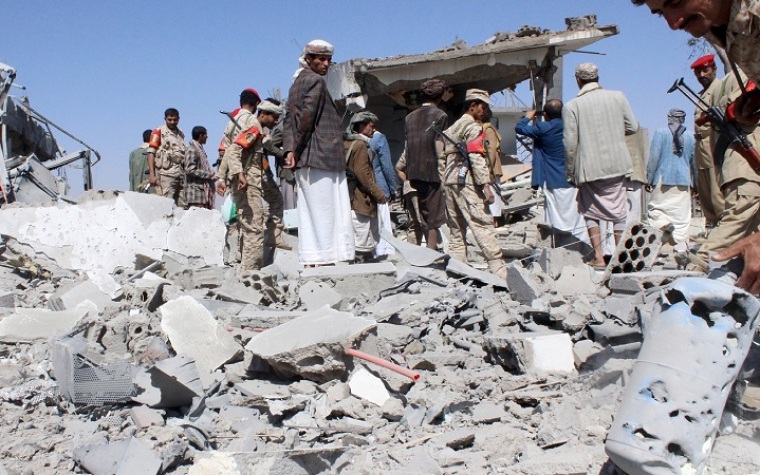U.S. caught in middle between Sunni Saudi Arabia & Shiite Iran

SANAA, Yemen (Christian Examiner) -- Saudi Arabia's military intervention in Yemen is drawing the predominately Sunni country further into a regional struggle with predominately Shiite Iran which backs the Shiite Houthi militants who are the target of the Saudi attacks. It also places the United States squarely in the middle of the broadening sectarian strife between these two Muslim countries.
The United States is sharing intelligence with Saudi Arabia and also giving targeting support for its warplanes which have pounded Houthi positions, particularly around the rebel-captured capital city of Sanaa, in a bid to restore order and allow the return of Yemeni President Abed Rabbo Mansour Hadi who fled the country after the collapse of his forces in the second largest city of Aden, a major port.
But Shiites are not the only aggressors in Yemen.
Al Qaeda -- which receives financial backing largely from wealthy Saudi donors -- also has militants capturing territory in Yemen. As much as Saudi Arabia dislikes the thought of a Shiite-controlled country on its Southern border, it also has no desire for Al Qaeda forces to pour over either and is pledging to rein in these Islamist extremists.
Meanwhile, Iran has sent troops into Iraq and Syria to combat Islamic State Sunni extremists who are wreaking havoc on the stability of the Shiite governments over each -- Sunnis are a majority in Syria, but a minority in Iraq. Although Iran has repeatedly stated it is not a U.S. ally, Iran is still considered to be a cooperating country in that it is also aiming to rid the region of Islamic State fighters.
Moreover, U.S. negotiators are in Lausanne, Switzerland, now, trying to forge a deal with Iran about its nuclear program -- which Iran insists is intended for power generation, but critics say could produce material for atomic bombs.
Another complication in the two countries' relationship is Iran's detention of American Pastor Saeed Abedini as well as three of his countrymen. President Obama has pledged to work for their release.
ARAB INTERVENTION
Saudi Arabia is getting support from other Sunni-majority nations in the region and even predominately Shiite Bahrain.
CNN reported that 100 Saudi jets were joined by 30 planes from the United Arab Emirates, 15 each from Kuwait and Bahrain, 10 from Qatar, and a lesser number from Jordan, Morocco and Sudan in the aerial attacks which started March 25. Both Pakistan and Egypt pledged naval help.
Egypt's foreign ministry also was quoted by the Middle East News Agency, owned by the Egyptian government, that Egypt could also send ground forces to coordinate with the 150,000 troops the Saudis have said are prepared to conduct ground operations.
On Sunday, Arab leaders meeting in Cairo, Egypt, agreed to form a combined military force to counter Iran's growing influence in the Middle East as well as combat Islamist extremism. Iran primarily is Persian in its ethnic makeup.
WORLD INTRIGUE
In the meantime, the Saudi government has captured world intrigue with two startling developments.
Last week in a CNN interview with Wolf Blitzer, the Saudi Arabian ambassador to the United States declined to rule out the possibility of the Saudis building their own nuclear weapons.
Ambassador Adel Al-Jubeir said it is not something to discuss publicly, but that "the kingdom of Saudi Arabia will take whatever measures are necessary in order to protect its security."
On the other extreme, an Israeli television station reported the Arab nation has agreed "to let Israel use its airspace to attack Iran if necessary, in exchange for 'some kind of progress' on the Palestinian issue."
Israel's Channel 2 TV attributed the news to an unnamed European official from Brussels, Belgium.